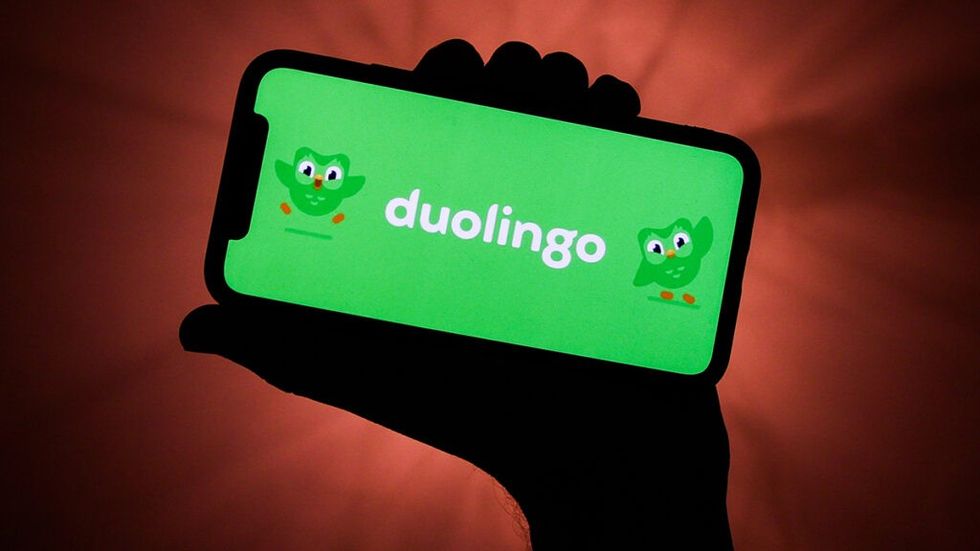
What Is the Easiest Language to Learn for English Speakers?
Learning a foreign language is easier today than it has ever been before. That’s thanks, at least in part, to language learning apps like Duolingo, programs like Rosetta Stone, a wealth of available language classes (both online and in person).
Thanks to both the web connecting us all remotely and to the ease with which we can travel in the 21st century, there are just so many ways to approach a new language you want to learn.
That said, even though this is a great time to learn a new language, let’s not pretend anything makes a new language easy to learn - it’s just easier than it was before!
Language learning: Not always easy

There’s a good reason so many school students always let out the biggest sigh of the day when the next class is foreign language: it’s just not easy for English speakers to learn a new language. But when you choose the right easiest language to learn, it need not be worth sighing over, and it is worth sticking with.
And good news: you probably already have a head start when it comes to a lot of the easiest languages to learn simply by the nature of day-to-day life in America. From the constant exposure to Spanish, to the familiarity of the structure you’ll find in many Germanic languages and English, to the many cognates found in other European languages, such as Norwegian, you’re not starting at square one when you pick one of the easiest languages to learn.
That said, just because a language is easy to learn does not necessarily make it the best investment of your time unless your specific use case warrants the language learning. Case in point: while Afrikaans is generally accepted as one of the easiest languages for English speakers to learn, the number of native speakers number less than 10 million. It is geographically limited in use, and according to the BBC, it may be a dying tongue, no less.
So by all means choose one of the easiest languages to learn, but hedge your bets like we did in our curated list of easiest languages below.
A few of the benefits of learning a foreign language
The most obvious benefits of language learning are that it lets you communicate with more people and to enjoy the writing, movies, music, and other arts and media created in other languages in ways English speakers otherwise could not. But beyond broadened opportunities for communication and arts and literature appreciation, there are many benefits to be gained by language learning beyond your native language.
When you are fluent in a foreign language (or better yet, when you can speak a few different languages at least passably) you make yourself significantly more competitive in the professional world. If it’s you and an otherwise comparable candidate vying for a job but you speak two languages or more, there’s a very good chance you are going to get the job. The same is true for school placement, internships, and so on, so it’s never too early to look into a second language.
Language learning also offers you benefits that are all about you, not about travel or literature appreciation or your career, according to ACTFL. Even learning and practicing the easiest language of which you are not a native speaker challenges and exercises your brain and helps hone your memory, your creativity, and your overall mental acuity much the same way as regular use of crossword puzzles, sudoku, or other brain building hobbies.
But unlike those challenges, enjoyable as they may be, language learning adds a life skill you can use beyond the game page.

Why is learning a new language so hard?
Learning a new language is not hard, provided you do it when you are young. But by the time you reach adulthood (or even adolescence) your brain has not only become accustomed to your native language, it has effectively turned off the mechanisms used to acquire new phonemes. Phonemes are those distinct types of sound in a language that distinguish one word from another.
As an example of a phoneme, think of how for a native English language speaker the words “row” and “how” are quite distinctly different. They would sound quite similar to a nonnative speaker though, right? So at least you know it goes both ways: it’s as hard for perfectly fluent English speakers to learn a new tongue as it is for non-English speakers to learn your native language.
Beyond the fact that the adult brain has those phonemic barriers to the very sounds of a new language, the other reason learning foreign languages is so hard is that it’s a four-pronged issue.
In order to truly become proficient at a new language, you are not, in fact, merely learning to speak it, but rather you have to learn to speak it, to hear it, to read it, and to write it. And that’s just a lot of work any way you cut it, especially if the language uses an alphabet or a whole writing system other than that of your native language.
What makes some languages easier to learn?
Tying in with what we just covered, not all languages are hard to learn even with those four aspects (speaking, hearing, writing, and reading, e.g.) as many of the Romance languages and Germanic languages are close to English in form, if not in vocabularies jam packed with cognates.
Closely related languages including Italian, Spanish, French, German, and even Romanian all follow many of the same rules as English, including comparable verb tenses, use of plural forms, and of course a similar alphabet and punctuation.
While most words in these languages and a few other will of course be different than their English counterparts, many words are similar from one language to another, giving you that head start. So really it’s not that one language is easier to learn than another from an objective standpoint, it’s that given your being a native English speaker, there are easiest languages for you to consider despite the fact that they may be confounding to someone who grew up speaking, say, Russian or Japanese.
Little surprise, then, that you won’t find a language with a Cyrillic- or character-based alphabet recommended here.
What are the easiest languages for English speakers to learn?
Based on factors ranging from comparable grammar structures to multiple similar words, here are the five easiest languages to learn for you if you’re an English speaker who wants to expand your horizons and linguistic abilities.
1. Norwegian
Norwegian is arguably the easiest language to learn for a native English speaker looking to add a second language, and that’s precisely because so much of the Norwegian language is similar to English. For example, consider a few common phrases in English and then in Norwegian, like “good morning” which is “god morgen,” “time for breakfast” is “tid til frokost,” and “I am American” is “jeg er Amerikansk.” Beyond the oft similar vocabulary, the structure of the Norwegian language is similar to that of English.
2. Spanish
Spanish is everywhere in America (and beyond, of course) and thus you not only have good reason to know it, you have countless opportunities to practice it, too. From signs and advertisements to conversations in shops or on the train to hearing the radio and watching TV, Spanish is ubiquitous here. The language itself is also easy for an English speaker to read and write, so once you get down the verb conjugations, which can be tricky, you can start loading up on vocabulary and you’ll be off to the races.
3. German

German has some tricky aspects to it, like how there are three “genders” of words, the masculine, feminine, and neuter, but it is a phonetic language, meaning words are pronounced more or less as an English speaker would expect, which makes reading and speaking much easier. There is also only one form of present tense which is simpler than English.
4. French
French is no more challenging than German nor harder than Spanish, really, based on the rules of grammar; it’s ranked where it is because the pronunciation of words is much harder and more nuanced, though, with many words spoken rather unlike an English speaker may expect based on reading. So it just takes practice.
5. Indonesian
There’s a jump in difficulty level here, to be sure, and we could have plugged in Italian, Portuguese, Romanian, or a few other languages that are easier for an English speaker to learn than Indonesian, but of the Asian languages, this one is the least challenging for native English speakers. That’s because it uses the Latin alphabet and largely phonetic pronunciations, and because the grammar rules, while unlike those of English, are quite simple.
The best tools to use to learn the easiest languages
If you are going to learn a foreign language all on your own, without the help of a class or hired tutor or a fluent friend and so on, it’s often best to use a couple of resources so you are not putting all your language learning eggs in one basket.
One program may be heavy on the grammar rules, while another may teach your more day-to-day useful language, such as popular idioms and phrases (“eggs in one basket,” anyone?) and thus you’ll get a well-rounded experience.
For language learners who want to use an app, Duolingo is one great choice because it features regular assessments and can customize your learning based both on your progress and on certain areas of interest, such as travel or work. Babbel is another great app for learning languages thanks to its efficient lessons, most of which are between 10 and 15 minutes long.

If you have more time to dedicate to your language studies and you can usually be seated at a computer (not on a phone or tablet, e.g.) then Rosetta Stone is a great language learning program – it takes a more holistic approach to teaching a language and you will not learn casual, conversational use of languages as fast as with some apps, but you will learn a foreign language more completely and with more complexity if you stick with Rosetta Stone programs.
There are also many audio only language learning resources that are great for people with car commutes when you need eyes on the road. Many of these can be obtained from your local library, so look into free resources before you spend money on such options.
There are also many other enjoyable ways to practice a new language and strengthen your foreign language skills. These include watching TV and movies in the language, which is easier than ever with options like YouTube or even specialty satellite TV channels, or listening to music or podcasts in the language, which is also easier than ever.
You can also be even more dynamic in your practice by seeking out opportunities to talk to actual people in real time via platforms like Skype, Zoom, or Google Meet. There are programs that can connect you to students hoping to learn English or to seniors happy to chat with language learners. You’ll brighten their day even as you sharpen your skills – a win-win if ever one existed.
So what language should I learn?
If you have a specific reason to learn a foreign language, be it that your job is relocating you to a new country, you are starting to date someone who does not speak English as a native language, you want to explore literature in the languages in which it was first written, and so on, then it’s not a matter of choosing the easiest language to learn: that choice has been made for you.
If you are looking to maximize the potential people with whom you can speak a common language, then Mandarin Chinese is your best choice – it is the most widely spoken language on earth by a factor of almost three, with some 1.3 billion native Chinese speakers alive now and the numbers only growing.

That said, this and other Asian languages are not easy for English speakers to pick up (with the surprising exception of Indonesian, which uses a Latin alphabet and simple grammar rules), thus not appropriate for many of the more casual language learning enthusiasts.
If you are looking to learn the easiest language that will aid you in the most interactions with others, then you need to think in terms of where you live and where you may travel. For most Americans, a romance language like Spanish is a great choice for English speakers to study as it is the second most common language in the United States and as it is spoken widely across Central and South America and of course in Spain. (In fact, Spanish is the second most widely spoken language on Earth, according to Babbel!)
The traveler who wants to learn a foreign language prior to a trip around Europe would do well to consider German, as Germanic languages are used not just in Germany but also in Austria, Switzerland, and parts of France and Italy.
Ultimately, though, the right language for you is the one you are most excited to learn – there is no wrong answer here. And you’re not limited to learning one language either: the capacity of your own brain to learn will amaze you, whether you are working on one of these easiest languages or you are on to Arabic or Cantonese.
You are capable of so much more than you know right now, and learning new things can be good for you in more ways than one!































